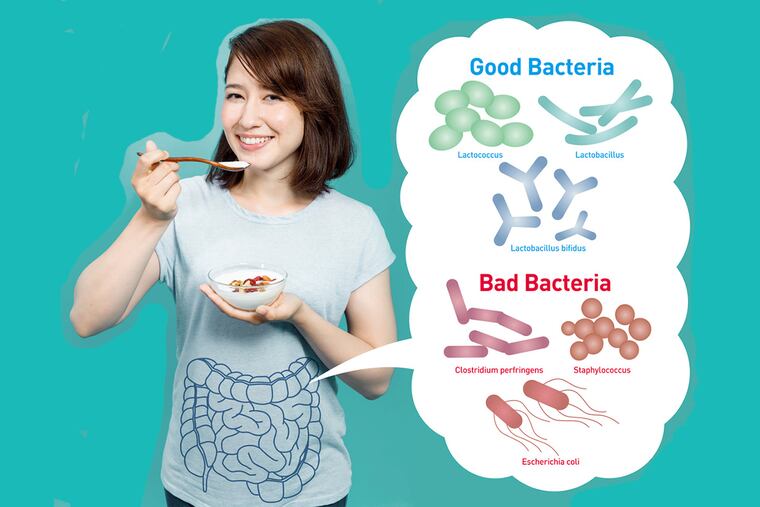Q&A: What should I be eating for gut health?
A healthy gut environment fuels the production of certain vitamins and processes that can help with your body's immune response.

Q: What foods should I be eating to promote gut health?
A: Our digestive tract is home to an incredibly complex community of microorganisms that can affect our overall health. In fact, studies have found that your gut houses the largest numbers of bacteria and the greatest number of species compared with other areas of the body.
A healthy gut environment fuels the production of certain vitamins and processes that can help with your body's immune response.
You have likely heard about probiotics advertised in yogurts and supplements; these are the "good bacteria" in your gut that help maintain the ideal balance of bacteria there, to ensure your body is working properly. Probiotics can also be found in fermented foods such as sauerkraut, kimchi, and torshi (pickled fruits and vegetables).
In addition, a diet promoting good gut health should include foods with prebiotic fibers — non-digestible parts of fruits and vegetables that help increase the number of probiotics in the gut. Some of these foods include garlic, onions, leeks, artichokes, and apple skins. Natural sweets such as dark chocolate, dates, and honey are also great prebiotics. Probiotics use these foods to produce compounds with anti-inflammatory and immune protective benefits.
On the other hand, there are certain types of foods that can decrease the number of probiotics in the gut. Sugary and processed foods disrupt the balance between the good and bad bacteria. An imbalance of bacteria in the gut has been linked to issues such as inflammatory bowel disease, irritable bowel syndrome, and colitis. Other studies have suggested links between certain bacteria in the gut and asthma, liver disease, and colon cancer.
Obesity and metabolic diseases such as diabetes have also been linked to poor gut health. One study found that among pairs of twins — one of whom was lean and the other of whom was obese — the obese twin had fewer types of bacteria in the gut than the lean twin.
If you're suffering from gastrointestinal distress for a prolonged period of time, it may mean that there is an imbalance in your gut microbiome. Consult with your physician about any issues you may be having, or any recent or proposed changes to your diet.
Farzaneh Daghigh, PhD, is a professor of biochemistry and codirects the culinary medicine elective at Philadelphia College of Osteopathic Medicine.